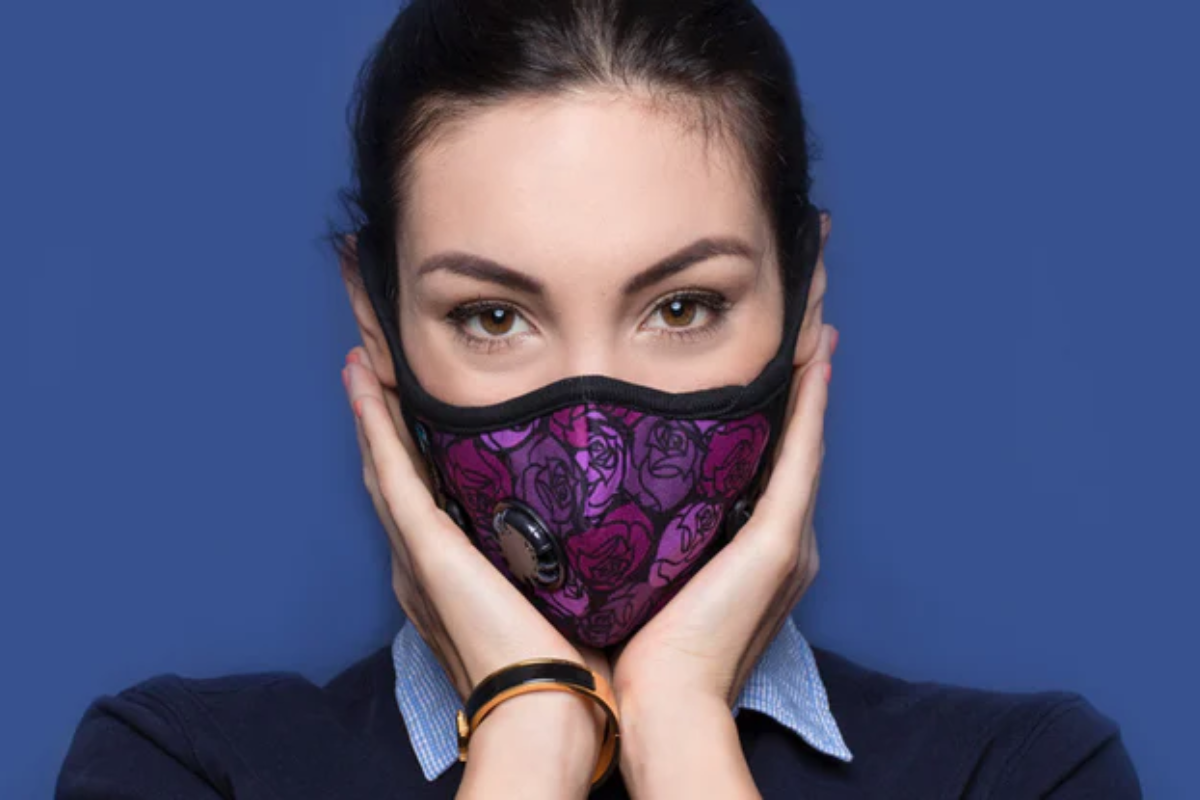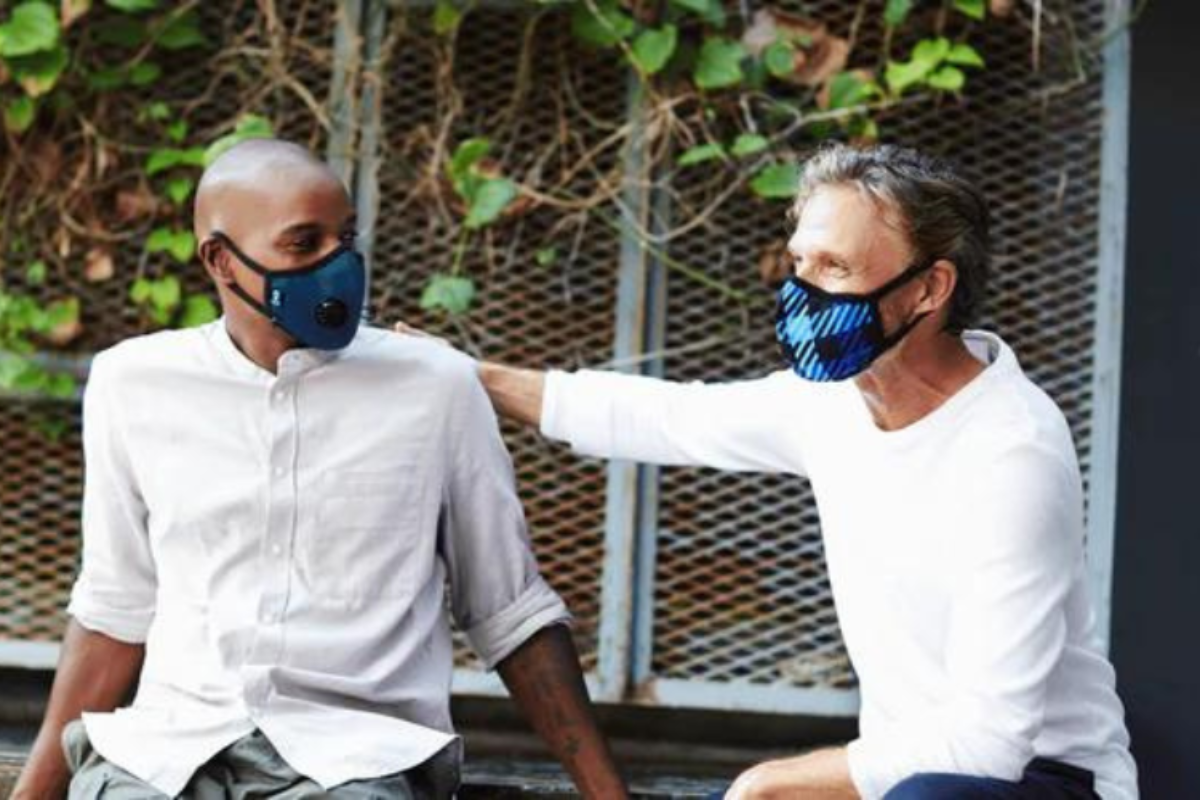
Understanding Filtration Technology in Face Masks: A Deep Dive into Clean Air
As we navigate through times of increasing pollution, airborne diseases, and allergens, the importance of clean air cannot be overstated. One of the most effective solutions to ensure the air we breathe is safe is the use of a filter mask. This blog will delve into the intricacies of filtration technology, how it's used in the Cambridge Mask Co face mask, and why filter masks are essential for health and well-being. We will also explore the broader applications of filtration technology, including its use in HEPA filters.
What is Face Mask Filtration Technology?
Face mask filtration technology is the science behind the design and functionality of masks that filter out harmful particles from the air we inhale. It involves the use of specialized materials and structures that trap contaminants such as dust, bacteria, viruses, and pollutants, preventing them from entering our respiratory system.
Filtration efficiency is a critical factor in determining the effectiveness of a face mask. This is measured by the mask's ability to block particles of various sizes, often quantified as PM (particulate matter) ratings. For instance, PM2.5 refers to particulate matter that is 2.5 micrometres or smaller, which can penetrate deep into the lungs and even enter the bloodstream.
How is Filtration Technology Used in a Cambridge Mask Co Face Mask?

Cambridge Mask Co has developed advanced filter masks that utilize state-of-the-art filtration technology. Their masks feature a multi-layered filtration system that incorporates several key components:
- Primary Filter Layer: This layer captures larger particles such as dust and pollen.
- Three-Ply Micro-Particle Filter: A crucial component designed to filter out smaller particles, including PM2.5, bacteria, and viruses. This layer often contains activated carbon, which adsorbs harmful chemicals and odors.
- Military-Grade Carbon Filter: Specifically engineered to meet high safety standards, this filter provides an additional layer of protection by trapping gases, bacteria, and viruses.
The combination of these layers ensures that Cambridge Mask Co face masks provide superior protection against a wide range of airborne threats, making them an excellent choice for both everyday use and in high-risk environments.
What is ‘Military Grade’ Filtration in a Mask, and Is It Better Than Others?
‘Military-grade’ filtration refers to filters that meet stringent standards set for military use. These filters are designed to provide exceptional protection in harsh environments, often exceeding the capabilities of standard filters. Key characteristics of military-grade filtration include:
- Higher Filtration Efficiency: Capable of trapping extremely small particles, including viruses and bacteria.
- Enhanced Durability: Designed to withstand challenging conditions, ensuring long-lasting protection.
- Advanced Materials: Often incorporate multiple layers, including activated carbon and specialized fabrics, to maximize filtration performance.
Military-grade filters are typically better than regular filters due to their superior efficiency and reliability. They provide an additional layer of safety, making them ideal for use in areas with high levels of pollution or in medical settings where protection against pathogens is crucial.
How Do Mask Filters Really Work?
Mask filters operate through a combination of mechanical and electrostatic mechanisms to trap particles. Here’s a closer look at how they work:
- Mechanical Filtration: This involves physically blocking particles through layers of dense fabric. Larger particles are captured by the outer layers, while smaller particles are trapped as they move deeper into the filter.
- Electrostatic Attraction: Many high-quality mask filters, like those in Cambridge Mask Co masks, use electrostatically charged fibers. These fibers attract and capture smaller particles, including viruses and bacteria, that mechanical filtration alone might miss.
- Activated Carbon: Some filters include layers of activated carbon, which adsorb harmful gases, chemicals, and odors, providing comprehensive protection.

Do Masks Protect You or Other People?
Masks serve the dual purpose of protecting both the wearer and those around them:
- Protecting the Wearer: High-quality filter masks prevent harmful particles, including viruses, bacteria, and pollutants, from entering the respiratory system. This is especially important in high-risk environments or areas with poor air quality.
- Protecting Others: Masks also help prevent the spread of infectious agents by trapping respiratory droplets that are expelled when the wearer talks, coughs, or sneezes. This reduces the risk of transmission to others, which is particularly crucial during pandemics like COVID-19.
Why Are Filter Masks Recommended?
Filter masks are highly recommended for several reasons:
- Health Protection: They safeguard against respiratory infections by filtering out bacteria and viruses. This is particularly crucial during flu seasons or pandemics like COVID-19.
- Allergy Relief: For individuals with allergies, filter masks can block pollen, pet dander, and other allergens, significantly reducing allergic reactions.
- Pollution Defense: In areas with high levels of pollution, filter masks protect against harmful particulate matter that can cause respiratory issues and long-term health problems.
- Improved Air Quality: Wearing a filter mask can improve the overall quality of air inhaled, reducing the risk of inhaling toxic substances.
How Does Filtration Technology in a Face Mask Improve the Air We Breathe?
The primary function of filtration technology in a face mask is to act as a barrier against pollutants and pathogens. Here’s how it improves the air we breathe:
- Particle Trapping: The multiple layers of filters capture particles of varying sizes, preventing them from entering the respiratory system.
- Chemical Adsorption: Activated carbon layers adsorb harmful gases and vapors, including volatile organic compounds (VOCs) and odors.
- Microbial Protection: Advanced filters can trap and neutralize bacteria and viruses, reducing the risk of airborne infections.
By incorporating these mechanisms, filter masks significantly enhance the purity of the air we inhale, promoting better respiratory health.
Can Filtration Technology Be Found in HEPA Filters?
Yes, the filtration technology used in face masks shares similarities with HEPA (High-Efficiency Particulate Air) filters. HEPA filters are widely recognized for their ability to trap at least 99.97% of particles as small as 0.3 microns. They are commonly used in air purifiers, vacuum cleaners, and HVAC systems to improve indoor air quality.
Both face mask filters and HEPA filters employ multi-layered filtration systems designed to capture fine particles and contaminants. However, while HEPA filters are stationary and used for purifying the air in a specific environment, face mask filters are portable and designed for personal use, providing protection wherever you go.
Conclusion
In an era where clean air is becoming increasingly scarce, understanding the technology behind filter masks is crucial. Cambridge Mask Co’s advanced filtration technology demonstrates how multi-layered filters can effectively protect against a wide range of airborne threats, from pollutants to pathogens. By wearing a high-quality filter mask, you can significantly enhance the air you breathe, ensuring better health and well-being.
Whether dealing with seasonal allergies, navigating polluted urban areas, or seeking protection during a pandemic, a filter mask is an indispensable tool. Embrace the power of filtration technology and take proactive steps to safeguard your respiratory health today.


